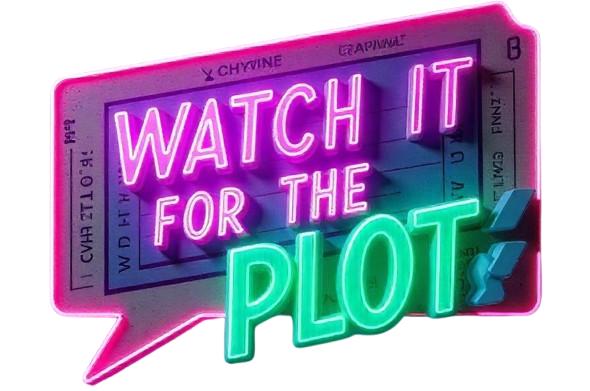Is There Any Harm in Opening a Checking Account?
A checking account is one of the most common tools for managing day-to-day finances. From receiving direct deposits to paying bills and making purchases, it’s an essential part of modern banking. But for those who are new to personal finance or have had negative past experiences with banks, it’s fair to wonder—is there any downside to opening a checking account?
In this guide, we’ll explore the possible drawbacks, the potential benefits, and what to watch out for before you open a checking account. Most of the time, the benefits far outweigh the risks, especially if you take a little time to understand the terms and choose the right bank for your needs.
What Is a Checking Account?
A checking account is a deposit account offered by banks and credit unions that allows you to access your money quickly and easily. These accounts are typically used for everyday expenses and offer features like:
- Debit card access
- Online bill pay
- Mobile check deposit
- Direct deposit setup
- ATM withdrawals and deposits
While checking accounts are considered a financial basic, not all accounts are created equal—and the wrong one can come with hidden costs or limitations if you’re not careful.
Are There Risks Involved With Checking Accounts?
Opening a checking account isn’t inherently harmful, but some factors can cause problems if overlooked. Here are a few things to be aware of:
1. Overdraft Fees and Minimum Balances
Some checking accounts come with overdraft protection, which sounds helpful until you realize it may involve steep fees. If you spend more than your balance, your bank might cover the cost—then charge you a fee for doing so.
Additionally, certain accounts require you to maintain a minimum balance to avoid monthly fees. If you regularly fall below that amount, it can become costly over time.
2. Hidden Monthly Maintenance Fees
While many banks advertise free checking, that’s not always the case. Some accounts come with monthly service fees unless you meet specific conditions, like setting up direct deposit or maintaining a minimum balance. It’s important to review the account disclosures before signing up.
3. Limited Interest Earnings
Unlike savings accounts, most checking accounts don’t offer competitive interest rates. Even interest-bearing checking options tend to offer much lower rates than savings accounts or money market alternatives. So if you keep a large sum in your checking account, you might miss out on better opportunities to grow your money.
4. Potential for Fraud
Because checking accounts are used for frequent transactions, they’re more exposed to fraud compared to savings accounts. That’s why it’s crucial to monitor your activity and set up fraud alerts and two-factor authentication when available.
5. Impact on ChexSystems Reports
Just like credit reports track your credit history, ChexSystems tracks your banking activity. If your account becomes overdrawn and remains unpaid, it could be reported, making it harder for you to open a checking account in the future.
Benefits of Opening a Checking Account
Despite the potential drawbacks, checking accounts come with several important benefits that support everyday financial stability and growth.
1. Convenient Money Management
A checking account gives you the tools to manage your income and expenses in one place. You can set up automatic bill payments, use a debit card for purchases, and monitor spending through mobile apps and online banking.
2. Safety and Security
Storing cash at home can be risky. When you open a checking account, your funds are typically insured by the FDIC (or NCUA for credit unions) up to $250,000. This provides peace of mind that your money is protected.
3. Access to Financial Tools and Services
Banks often offer tools like budgeting features, account alerts, and personalized insights to help you stay in control of your finances. Plus, having an established checking account can help you qualify for other financial products like credit cards, loans, or even investment accounts.
4. Easier to Get Paid and Pay Others
With direct deposit, you can get paid faster and skip trips to the bank. A checking account also makes it easier to send money to friends and family, pay for services, or set up recurring payments without using cash or money orders.
Tips for Choosing the Right Checking Account
To avoid the potential downsides and get the most out of your account, it’s important to do your homework before signing up.
Compare Fees and Requirements
Look for an account with no monthly maintenance fees or an account that waives fees if you meet certain criteria. Avoid accounts with high overdraft charges or unnecessary transaction limits.
Consider ATM Access
If you use ATMs frequently, choose a bank with a large network or one that reimburses out-of-network ATM fees.
Look for Mobile Banking Features
Check for mobile check deposit, easy bill pay options, and fraud alerts. These tools make banking more convenient and help you stay on top of your balance and transactions.
Confirm FDIC or NCUA Insurance
Make sure the institution is federally insured, which protects your money up to the legal limit in case of a bank failure.
Common Misconceptions About Checking Accounts
Some people avoid opening a checking account based on past experiences or misunderstandings. Let’s clear up a few myths.
Myth: You Need a Lot of Money to Open One
Many banks offer accounts with low or no minimum deposit requirements. You don’t need to be wealthy to get started.
Myth: They’re Only for People with Perfect Banking History
While previous account issues may make it harder to open an account, second-chance checking options are available. These accounts help individuals rebuild their banking history while offering basic features.
Myth: It Hurts Your Credit Score
Opening a checking account doesn’t directly affect your credit score. However, mismanaging it (like racking up overdraft fees or having it closed for unpaid balances) could have indirect effects if your activity is reported to collections or ChexSystems.
So, Is There Any Harm in Opening a Checking Account?
In most cases, no—there’s little harm in opening a checking account if you’re informed and choose one that fits your needs. While there are potential downsides like fees, fraud risk, or overdrawn accounts, these can usually be avoided with smart banking habits and account monitoring.
When you open a checking account with a reputable financial institution, you gain access to a secure, convenient way to manage your daily finances. With a little research and responsible use, your checking account can be a foundational tool for budgeting, saving, and building your overall financial health.
Final Thoughts
A checking account is more than just a place to store money—it’s a gateway to managing your finances with confidence. By understanding the pros and cons and knowing what to watch out for, you can choose an account that supports your lifestyle without unexpected costs or stress.
If you’re ready to take that step, review your options, compare terms, and find the best fit for your goals. Used wisely, your checking account can offer long-term value with very little downside.



